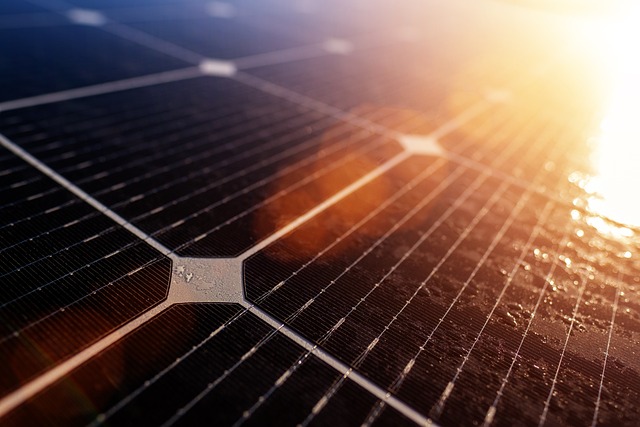Last updated on January 15th, 2024 at 10:20 am
Solar panel installation is a smart investment for homeowners looking to cut costs and reduce their carbon footprint. We often hear about the environmental benefits of solar energy, but there’s a lot more to the story.
In this guide, Warmable will outline the advantages of installing solar panels on your home. From slashing energy bills to boosting property value, we’ll cover the essentials that make solar panels a bright idea for UK homeowners.
Lower Energy Bills
Solar panels are a game-changer when it comes to reducing monthly energy expenditures. By producing electricity directly from sunlight, homeowners can significantly cut down on their reliance on traditional power sources. Solar power generation reduces utility bills as the energy harnessed by the panels offsets the amount needed from the grid.
The savings from solar panels can be quite substantial depending on various factors such as the size of the solar panel system, electricity rates in the area and individual energy usage. To understand the potential savings, let’s look at the average energy production and consumption:
| Solar System Size (kW) | Average Annual Savings (£) |
|---|---|
| 3 | 160-400 |
| 4 | 270-540 |
Moreover, many regions offer net metering, a billing mechanism that credits solar energy system owners for the electricity they add to the grid. For instance, if the solar panels produce more energy than is used in the home, homeowners may receive a credit on their electricity bill, leading to further cost savings.
Another vital aspect to consider is the ‘solar payback period’ which refers to the time it takes for the energy savings to equal the initial cost of the solar panels. On average, it’s estimated that solar panels pay for themselves within 5-10 years, after which all the savings go directly into the homeowner’s pocket.
It’s clear that investing in solar technology can lead to long-term financial benefits, with reduced energy bills and potential earnings through net metering or feed-in tariffs. Hence, solar panels are not only a responsible environmental choice but also a smart financial move.
Environmental Benefits
The switch to solar power is more than just a financial decision; it’s a commitment to a cleaner environment. Homes with solar panels contribute significantly to the reduction of greenhouse gas emissions, a leading cause of climate change. An average residential solar panel system can eliminate three to four tons of carbon emissions each year—the equivalent of planting over 100 trees annually.
Renewable energy sources like solar are essential in reducing our reliance on fossil fuels. Solar panels produce electricity without water or air pollution, showcasing sustainable living without sacrificing modern comforts. As responsible homeowners, harnessing the sun’s power allows us to play a vital part in the global effort to combat environmental degradation.
Embracing solar energy also promotes biodiversity. By reducing habitat destruction from traditional energy sources like coal and natural gas, wildlife preservation becomes an indirect, yet invaluable benefit of solar panel installation. Furthermore, the decentralised nature of solar power using solar farms lessens the need for large power plants and the associated environmental impacts, leading to a more ecological balance.
Increased Property Value
When we install solar panels on our homes, property value has been shown to increase significantly. Buyers are increasingly drawn to homes with solar installations, recognising the long-term savings and environmental benefits. This investment not only aids in reducing our carbon footprint but also has a direct impact on resale value.
Recent studies indicate that homes equipped with solar energy systems have the potential to sell at a premium compared to those without. Here’s a quick snapshot of what that looks like:
| Percentage Increase in Property Value | Solar Premium |
|---|---|
| 3-4% | £15,000 |
It’s essential to understand that the exact increase can vary based on factors like the installation size, geographic location (such as London or Glasgow), and the local electricity rates.
Moreover, having solar panels can help our homes sell faster. The demand for energy-efficient homes is on the rise and solar panels are a clear sign of a property’s efficiency. They serve as a tangible indicator to prospective buyers that the home will offer energy savings, which can be a compelling selling point.
In addition to the potential bump in property sale price, many regions offer additional incentives such as tax credits or exemptions which may further sweeten the deal for both sellers and buyers. By staying informed of these incentives, we can leverage solar installations for more than just their utility savings — they become a strategic investment in our property’s marketability.
Government Grants and Incentives
Unlocking financial benefits through government grants and incentives is a major perk for homeowners who invest in solar panels. Government grants can significantly lower the cost of installation and equipment. In many regions, these incentives are designed to make solar energy more affordable and accessible.
Many areas offer additional local rebates and solar renewable energy certificates. These financial incentives vary by location but typically include:
- Performance-based incentives that pay homeowners over time based on the energy their solar systems produce
- Property tax exemptions for the added value of the solar system
The combination of these can dramatically lower the overall out-of-pocket costs. To make use of these incentives, homeowners should:
- Research local council grants
- Consult with a solar energy company or a tax professional
- Ensure timely application for eligible programs
It’s also important to stay informed about changes in legislation that may affect the availability and scope of solar energy incentives. Staying up to date ensures we can help homeowners take full advantage of the savings available to them.
Energy Independence
Harnessing the power of the sun allows us to achieve a significant level of energy independence. Instead of relying solely on the grid with a conventional electric boiler, which is often powered by fossil fuels, solar panel owners generate their own clean electricity. This shift not only secures a more sustainable energy source but also protects against unpredictable rises in energy costs.
With solar panels affixed to our roofs, we’re less susceptible to local outages caused by overloaded power systems or extreme weather conditions. In essence, our homes become mini power stations, capable of sustaining our day-to-day electricity needs. The freedom from total dependence on utility providers empowers us, as homeowners, to take control of our energy usage and production.
Investing in additional equipment such as solar batteries further enhances our energy autonomy. These storage solutions let us safeguard any excess energy produced for later use, ensuring a steady and reliable supply even when the sun isn’t shining.
- Elements of energy independence with solar panels:
- Reduced reliance on the grid
- Protection from energy price fluctuations
- Enhanced resilience against power outages
- Ability to store surplus energy for future use
It’s crucial we understand that achieving energy independence doesn’t happen overnight. It requires careful planning and a willingness to invest in the initial setup. However, the long-term benefits of self-sufficient energy provision are immense, offering both peace of mind and a more predictable energy budget.
Conclusion
We’ve seen that solar panels offer a range of impressive benefits for homeowners. From slashing monthly bills to fostering a greener planet and enhancing property value, the advantages are clear. Opting for solar power isn’t just a smart financial decision; it’s a step towards a more sustainable and resilient lifestyle. With the potential for energy independence and a buffer against price hikes, the initial investment in solar technology pays dividends in more ways than one.
Frequently Asked Questions About Solar Panels
What Are The Financial Benefits Of Installing Solar Panels?
Installing solar panels can reduce your energy bills, qualify you for net metering credits, and increase your property’s value. Over time, the savings on electricity can offset the initial investment costs.
How Do Solar Panels Help The Environment?
Solar panels produce clean electricity directly from sunlight, reducing the reliance on fossil fuels and lowering greenhouse gas emissions, which is beneficial for promoting biodiversity and sustainability.
What Is a Solar Payback Period?
The solar payback period refers to the duration it takes for the savings made from the solar panels to cover the initial investment cost. After this period, the electricity generated is essentially free.
Can Solar Panels Lead To Energy Independence?
Yes, installing solar panels can lead to energy independence by minimising reliance on the grid, protecting against energy price fluctuations, and providing resilience during power outages.
Will Solar Energy Save Me Money In The Long Run?
Solar energy can save you money in the long run by significantly reducing or even eliminating your monthly energy bill, especially when paired with energy storage systems and efficient energy use.


